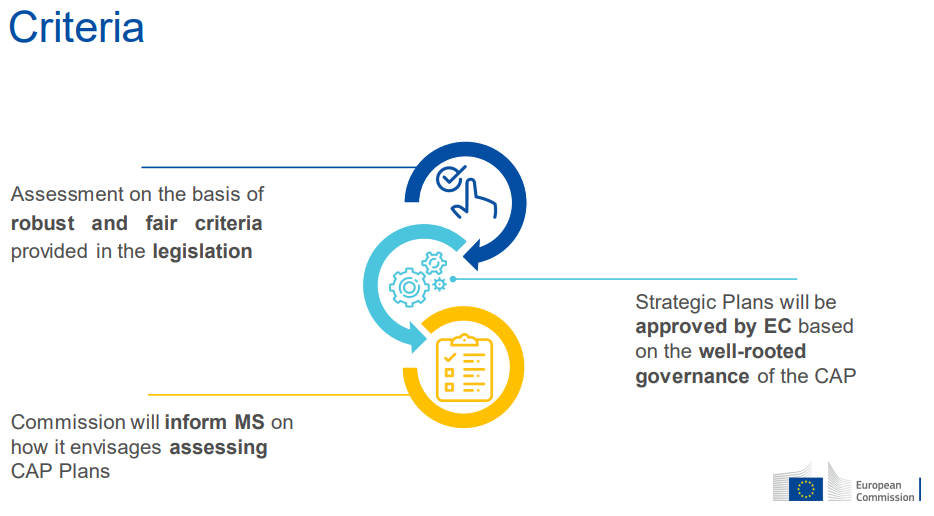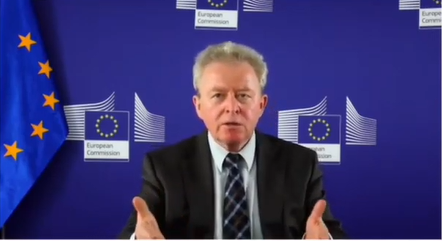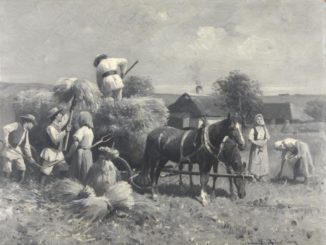
The design and approval of the future 27 CAP Strategic Plans are key moments to demonstrate the true commitment towards a fairer, greener, and rural-proofed CAP reform. The European Commissioner for Agriculture, Mr Wojciechowski, promised ‘full transparency’ and ‘open dialogue beyond DG AGRI and agri-ministers’. Now ARC can reveal that a Joint Letter (link to letter below) has been sent by civil society organisations to the Commission to put their promises in practice. Will the Commission commit to the proposed actions? Article by ARC2020, letter by a coalition of national platforms.
From National Capitals back to Brussels
After the political agreements reached in Brussels on the future CAP 2023-2027, Member States are advancing their preparation of their National Strategic Plans. The submission of the 28 draft plans[1] is expected around the end of 2021, with their entry into force by January 2023.
Many decisions are still to be tackled and resolved at national and regional levels. The Commission will then assess how these decisions meet the legislations and the ambitions of the CAP reform, Green Deal, and Long-Term Vision for Rural Areas.
The design and approval of the CAP plans embrace a wide range of challenges, competencies and legislations. With a very tight timeline in place, in many Member States, the overall clarity of preparatory steps, including the quality of public consultations, is likely to worsen. The opportunities to review the government’s analyses and decisions or address substantial reforms might simply be neglected (It is worth remembering that the reform itself started in 2018, and there was scope for a two year transition, so there is no need for such a rushed timeline).
Without setting the ground for an evidence-base and inclusive design and approval approach, the new plans are likely to be designed and approved out of ‘strategic timing’ and a ‘minimal change’ approach. The approach should instead be one of strategic planning underpinned by detailed consultation rounds.
A wide range of civil society organisations grouped in coalitions from nine different Member States have sent a Joint Letter to the European Commission Directorate Generals with shared competences on the CAP, demanding concrete actions in setting up an approval procedure that is open and ambitious in terms of policy coherence, transparency and stakeholder engagement.
According to Federica Luoni, (Cambiamo Agricoltura, Italy), this letter is important for all CAP stakeholders across the EU, but particularly relevant for the Italian CAP plan. “We are approaching the submission deadline, and there hasn’t been any effective and structured series of consultations in Italy, except for some sporadic events. The preparation is very disappointing from the governance, technical, and democratic point of views. Although Italy could have set better consultations and technical working groups much earlier, we are now concerned that the plan will be approved by the Commission without properly examining the various elements of a fairer and greener CAP, nor how the regional interventions for rural development will fit together in a logic of result-based delivery model. There is no justification to continue until 2027 with a business-as-usual plan for food, agriculture, biodiversity and rural development in Italy.”
Read the Joint Letter – Making the Approval Process of the CAP Strategic Plans Open and Ambitious
EN Francais – Lettre ouverte négo PSN_fin
From policy statements to practices
Earlier in an event in May 2021, the Commission DG AGRI presented the general approach to assess and approve the plans (Figure 1), although many details are still unclear, for instance:
- The way of working with others Directorate Generals like DG SANTE, ENV, CLIMA or the Commissioner for Democracy and Demography for the rural proofing[2];
- The interactions among other stakeholders than agricultural ministries and agri-business farmers unions, such as farmers, agro-ecologists, public authorities, civil society organisations, researchers and citizens, consultants for external support (e.g. assessment support for DG ENV or the future CAP networks).
- The procedural steps and structure of the various Commission’s assessment tools to screen the draft plans, particularly for the involvement of stakeholders in the tools’ design and application.

Besides the details, Mr Janusz Wojciechowski (below), Commissioner for Agriculture, during an online event, committed to set up a transparent and inclusive approach, as stated here (transcriptions from min. 2:26:57):
“My personal intention will be full transparency. It will not be a dialogue behind closed doors between the functionaries of the Commissions and the Member States. It will be an open discussion. If we have an objection or doubt about the proposal of the draft of the CAP SP presented by the Member States, we will publicly present our objections. The role of stakeholders is not finished until the official consultations to design the national CAP Strategic Plans, but will continue until the approval and final result. I hope that the stakeholders will put positive pressure for the Member States to achieve the best CAP Strategic Plans, respecting all the aspects from animal welfare, sustainability, economic viability”
Three specific objectives
Against this background, the Joint Letter calls on the Commission to start envisaging and implementing a concrete procedure that allows any stakeholders to:
- Access the draft or partial draft CAP plans exchanged between the Member States and the Commission until their final versions/approval.
- Receive the latest notifications on the state-of-play of the plans (e.g. submissions, assessments, feedbacks, revisions, pending approval/rejection), as well as the contact information to reach out the European Commission’s officers and external assessment support for queries and observations on the CAP Strategic Plans.
- Independently assess the draft CAP plans, as well the quality of the Commission’s approval procedure (e.g. coherence, transparency, rigor, ambition).
Proposed actions
To achieve these objectives, the coalitions have put forward a number of specific actions that the European Commission can implement in the upcoming months:
- Demonstrate how the various DGs will cooperate in practice throughout the approval process, for instance by presenting their timelines, sharing the best data and information on the drafted plans and creating common communication channels directly with the Member States.
- Publish the tools to screen, assess, and approve the drafted CAP strategic plans well in advance (criteria, grids, guidelines, data sources), and engage citizens in this participatory process through the future CAP networks.
- The results of European Commission’ assessments of the submitted plans should be published fully, as should observation letters and recommendations given to modify and approve the draft CAP Strategic Plans. Particular attention should be given to the ‘non-backsliding principle’; scientific justifications to accept certain ‘practices under eco-schemes’; the quality of ex ante evaluations and strategic environmental assessments; rural proofing; and the substantial contribution towards fairer CAP plans (e.g. definitions of active farmers, capping, redistribution, maximum level for the value of payment entitlements, convergence, social conditionality).
- A public communication channel should be created by the Commission and Member States to allow civil society organisations, farmers, or researchers to send queries, prompt feedback, relevant data, or suggestions on the submitted materials.
- During the assessment, identify the areas where decisions made in the National CAP Strategic Plans are lacking data and information in order to improve their future planning, performance monitoring and evaluation.
- Collect and publish the final and full versions of the approved National CAP Strategic Plans in one single portal and in their national languages.
To avoid the situation whereby granted flexibility to the Member States culminates in a race-to-the-bottom, the letter finally urges the Commission to facilitate a sound and fair approval process across the 28 plans.
[1] Belgium will submit two plans for Flanders and Wallonia
[2] Rural proofing is one of the commitments stemming from the Long Term Vision for Rural Areas
Further reading
Flagrant Vagueness | Commission Launches a Vision Without a Strategy
A Rural Vision is Good – A Strategy and Immediate Action is Better





